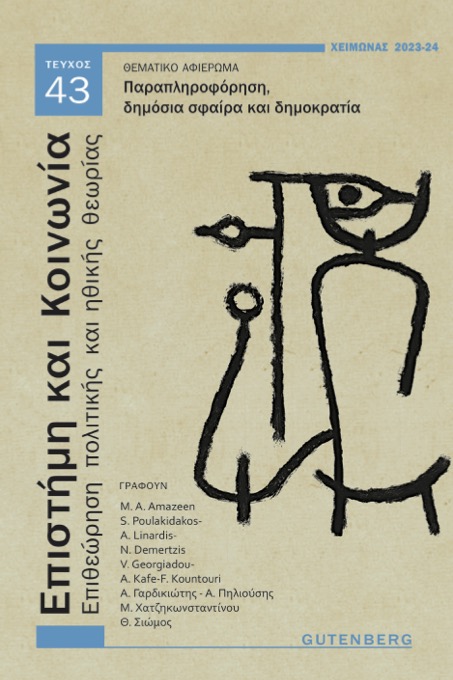THE PROMISE AND PITFALLS OF FACT-CHECKING IN 2022
Abstract
Given the evolution and growth of fact-checking around the globe, practitioners and academics have been gathering with increasing frequency to discuss the state of the enterprise. For instance, the first international scientific one-day conference on fact-checking in Athens, Greece assembled in July 2022, to discuss the contribution of universities and research centers in tackling misinformation (EKKE, 2022). Just weeks prior, the 9th annual global fact-checking summit occurred in Oslo, Norway (Larsen, 2022). In October, two conferences convened. Hong Kong Baptist University hosted the virtual conference, ‘Checking the Fact-Checkers: A Global Perspective’ (HKBU, 2022). In the U.S., the 4th annual Conference for Truth and Trust Online gathered in Boston, Massachusetts, providing a forum for academics, industry, non-profit organizations, and other stakeholders to deliberate on the problems facing social media platforms and technical solutions –including fact-checking– to understand and address them (Truth, n.d.). Thus, the continued interest in fact-checking suggests periodic updates on how the practice is evolving has merit.The present article is one such effort which briefly addresses the origins of fact-checking followed by an examination of some of the challenges and opportunities facing the enterprise.
Article Details
- How to Cite
-
Michelle. (2024). THE PROMISE AND PITFALLS OF FACT-CHECKING IN 2022. Science and Society: Journal of Political and Moral Theory, 43, 11–33. Retrieved from https://ejournals.epublishing.ekt.gr/index.php/sas/article/view/36883
- Section
- Articles

This work is licensed under a Creative Commons Attribution-NonCommercial-ShareAlike 4.0 International License.
Authors who publish with this journal agree to the following terms:- Authors retain copyright and grant the journal right of first publication with the work simultaneously licensed under a Creative Commons Attribution-NonCommercial-ShareAlike License that allows others to share the work, not for commercial purposes, with an acknowledgement of the work's authorship and initial publication in this journal. If you remix, transform, or build upon the material, you must distribute your contributions under the same license as the original.
- Authors are able to enter into separate, additional contractual arrangements for the non-exclusive distribution of the journal's published version of the work (e.g., post it to an institutional repository or publish it in a book), with an acknowledgement of its initial publication in this journal.
- Authors are permitted and encouraged to post their work online (e.g., in institutional repositories or on their website) prior to and during the submission process, as it can lead to productive exchanges, as well as earlier and greater citation of published work (See The Effect of Open Access).



